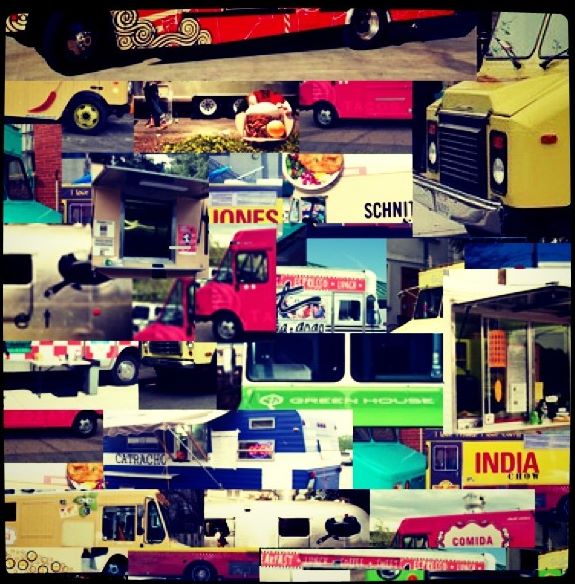Mobile food vendors aren’t quite as controversial as medical marijuana, but as far as fast moving community trends, mobile food vehicles come in a close second. Already, at least one mobile food vendor has thrown in the towel and sworn his mobile kitchen into retirement. Categorized as an emergency issue, three weeks ago Boulder City Council tasked the city planning staff with creating a municipal ordinance for Boulder’s emerging mobile food vendor industry. Prior to Tuesday, May 17, mobile food vendors and regulators were operating in a lawless grey-zone.
Multiple interests are at play around mobile food vending. Detractors of the mobile food scene have a variety of concerns: brick and mortar food purveyors don’t want the competition; residential zones are concerned about traffic and noise; and city planning staff are concerned about accidental changes to the urban land-use (allowing for semi-permanent pop-up food courts). On the other hand, supporters of mobile food vending see it as a positive community centerpiece in which food can be brought to industrial areas where it is missing; provide a hub for the city’s sub-communities to gather around; and create a myriad of small entrepreneurial activities to add vibrancy to the local economy.
“Hip” cities across the country have welcomed mobile cuisine to their streets already. However, in an official sense these food vendors had never before existed within the City of Boulder’s day to day business landscape. Solidifying several important policies, the city council hopes to ease all parties’ concerns around mobile food vendors.
Features of the new ordinance in commercial districts include:
- Vendors must be a minimum of 150 feet from existing restaurants;
- They may only operate on private property;
- They are not permitted to set up in the public right of way;
- No amplified music; and
- Recyclable plates and utensils must be used.
In addition to these ordinances in commercial centers, slightly different rules were designed for other city zoning districts. In industrial districts food trucks will be allowed in the public right of way and there must be a minimum of 200 feet between food trucks. Additionally the Boulder Municipal Airport will be an area vendors will be permitted although it falls outside of being an industrial zone. Mobile food vehicles will not be allowed to operate in residential areas.
For Rayme Rossello, the owner operator of Comida food truck, the ordinance’s passage “is a big relief.” She said that the city and its perception of food trucks have come a long way since she first requested an operator’s license. At first, there was a perception she was preparing to open a “roach coach.” But now, many community members are recognizing food trucks as a gourmet garnish to Boulder’s bourgeoning foodie scene.
The staff-recommended ordinance was passed unanimously on a motion by Matt Applebaum and seconded by Ken Wilson. In a final amendment to the city staff’s proposed ordinance, Councilperson KC Becker proposed a test period allowing for mobile food vendors at North Boulder Park. While this proposal was more controversial, her amendment passed in a 5 to 4 vote.




 (3 votes, average: 4.33 out of 5)
(3 votes, average: 4.33 out of 5)